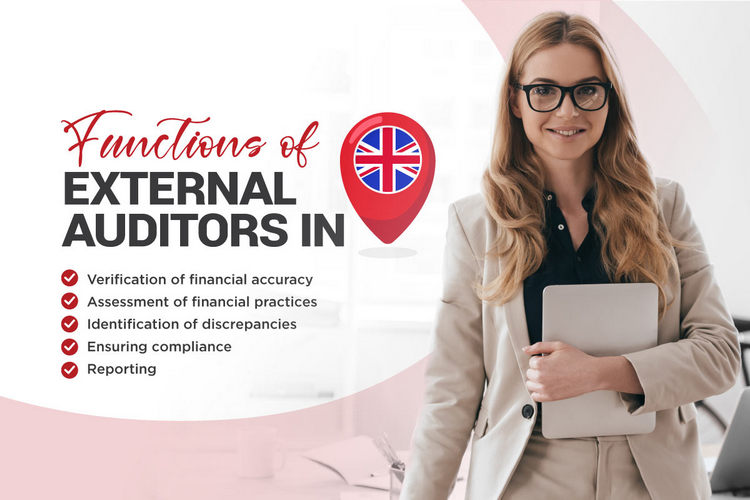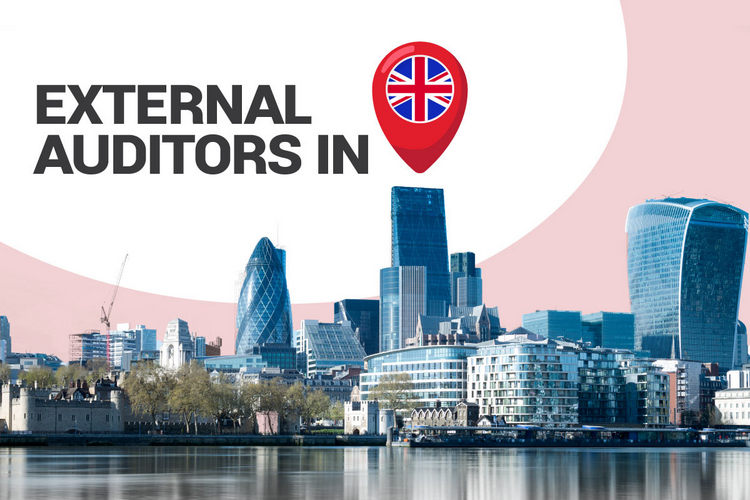- Notifications

We will only notify the newest and revelant news to you.
Wherever you are, and even in the UK, maintaining financial transparency and compliance with the law is paramount. External auditors play an important role in achieving these goals, providing independent assessments of a company's financial statements and operations. This article will provide an overview of the services provided by external auditors for business in UK.
An external auditor in the UK is a professionally qualified individual or a firm hired by a company to conduct an independent examination of its financial statements. This role is critical to ensure the accuracy and fairness of the reported financial position and operations of the company. External auditors in the UK must adhere to strict regulatory standards and are typically members of professional bodies such as the Institute of Chartered Accountants in England and Wales (ACCA) or the Institute of Chartered Accountants of Wales.
Purpose of external auditors in UK play a crucial role as independent watchdogs hired by companies to meticulously scrutinize their financial records and operations. By meticulously reviewing financial statements, their mission is to guarantee accuracy and transparency, instilling confidence in shareholders, investors, creditors, and regulatory agencies alike. Moreover, their invaluable insights and recommendations aid in fortifying a company's internal controls and systems, fostering efficiency and reliability across the board.
External auditors perform several key functions that are integral to the corporate governance of any business in the UK:

Functions of external auditors in UK
The role of an external auditor comes with a series of specific duties and responsibilities that are critical to the integrity and credibility of financial reporting. Below are 3 vital external auditor duties and responsibilities in the UK, including:
Both external and internal auditors in UK play crucial roles in the auditing process, but their functions, objectives, and responsibilities are distinctly different. Understanding these differences is key for companies in ensuring compliance and enhancing their financial and operational strategies.
| No | External Auditors | Internal Auditors |
| Objective and Scope | Provide an independent opinion on a company's financial statements' accuracy and fairness. | Evaluate internal controls, risk management, and governance processes to enhance operational efficiency. |
| Independence | Assess if the financial statements present a true and fair view of the company's financial performance and position, as per accounting standards and legal requirements. | Employees of the company, operating independently but integral to its functions. |
| Reporting | Maintain independence from the company, appointed by shareholders to ensure an unbiased report. | Internal auditors report their findings to the company’s management and the board’s audit committee. Their reports are used to make internal business decisions and are not generally available to the public. |
| Regulatory Framework |
| Adhere to standards such as those set by the Institute of Internal Auditors (IIA), with flexible guidelines tailored to organizational needs. |
| Focus and Approach | Focus primarily on historical financial data and statutory compliance, conducting retrospective examinations to verify financial statement accuracy. | Adopt a forward-looking approach, focusing on future challenges and opportunities for improvement in addition to compliance and financial risks. |
External auditor services in UK encompass a wide range of activities designed to safeguard the accuracy and reliability of financial information. These services include:

External auditor services in UK
In conclusion, external auditors provide a critical service that helps businesses in the UK maintain integrity, comply with legal and financial standards, and enhance their operational effectiveness. Their independent verification of financial statements assures stakeholders of the accuracy of reported financial performance, fostering trust and confidence in the financial practices of the business. Whether through regular statutory audits or specialized services, external auditors are integral to the robust financial governance of any business.
Latest news & insights from around the world brought to you by One IBC's experts
We are always proud of being an experienced Financial and Corporate Services provider in the international market. We provide the best and most competitive value to you as valued customers to transform your goals into a solution with a clear action plan. Our Solution, Your Success.